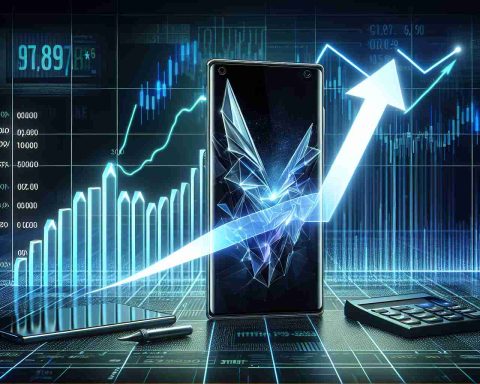In a notable development, Susan Ocampo, a pivotal figure at MACOM Technology Solutions Holdings Inc. (NASDAQ:MTSI), executed stock sales amounting to roughly $19.8 million. These sales occurred over a three-day period from November 13 to November 15, with Ocampo offloading 161,019 shares at prices between $123.03 and $130.05 per share.
Following this transaction spree, Susan Ocampo still owns a significant number of shares indirectly through trusts for her children, totaling 5,914,008. Additionally, she maintains direct ownership of 2,138 shares. The most substantial of these transactions occurred on November 15, involving 71,796 shares at an average selling price of $123.03.
Strategic Moves and Financial Milestones
MACOM Technology Solutions, based in Lowell, Massachusetts, has been drawing attention with its burgeoning financial performance. The company recently announced record-setting figures for its fourth fiscal quarter of 2024, reporting $200.7 million in quarterly revenue and an adjusted EPS of $0.73. For the complete fiscal year, MACOM generated $729.6 million in revenue, achieving an EPS of $2.56.
In light of this robust performance, Needham & Company has raised their stock price target for the company to $150, affirming a Buy rating. The firm’s strong growth projections, especially in the Data Center domain, underscore MACOM’s fortified market position.
The semiconductor giant has also augmented its capabilities with the acquisition of ENGIN-IC, enhancing its microwave IC design for defense applications. Looking forward to fiscal Q1 2025, MACOM forecasts revenue between $212 million and $218 million, with an adjusted EPS range of $0.75 to $0.81. The company is ambitiously eyeing a revenue run rate exceeding $1 billion by fiscal year 2026.
Despite the insider sales, MACOM’s stock reflects sturdy performance with MTSI boasting a 51.72% total return over the past year. Nonetheless, the stock is currently trading at high valuation multiples, with a notable P/E ratio of 114.95. Investors are keen to continue monitoring these metrics closely.
Surprising New Shifts in the Semiconductor Industry
In a rapidly evolving industry, the strategic maneuvers of key players like MACOM Technology Solutions have far-reaching implications beyond Wall Street. As Susan Ocampo, a key executive at MACOM, recently conducted significant stock sales, this transactional activity shines a spotlight on both corporate strategy and personal financial management within the semiconductor sector. But what does this mean for people, communities, and the broader economic landscape?
The Ripple Effect of Semiconductor Advancements
With MACOM’s impressive financial performance in fiscal 2024, combined with its plans for the future, the impact on various sectors is notable. The company’s focus on enhancing microwave IC design for defense applications is particularly significant. This move not only consolidates MACOM’s position in the defense industry but also highlights the increasing intersection between technology and national security. For communities reliant on defense contracts, this could mean more jobs and investments.
Furthermore, the semiconductor field’s expansion, driven by giants like MACOM, presents both opportunities and challenges. On the positive side, the increased demand for semiconductors fuels innovation and growth, potentially leading to technological advancements that benefit society. The strides made in data centers and communications technology can enhance connectivity and enable smarter infrastructures.
Potential Drawbacks and Societal Concerns
However, the rapid growth in the semiconductor industry also raises some concerns. The industry is known for its significant environmental footprint, including substantial energy consumption and e-waste. As companies like MACOM pursue higher revenue targets and amplify production, there will be a corresponding responsibility to manage their environmental impact sustainably.
Another consideration is the economic disparity that might arise. While well-performing companies can stimulate local economies, global supply chain dependencies and market volatility could adversely affect smaller communities or markets tied to semiconductor production.
Interesting Facts and Controversies
Interestingly, the semiconductor industry, while tech-focused, depends heavily on geopolitics. Global supply chain dependencies make companies vulnerable to international tensions. For example, the dependence of many U.S. companies on suppliers in regions with political instability underlines the importance of strategic diversification.
Moreover, though MACOM’s insider sales might raise eyebrows, it’s not uncommon in tech industries for large stock transactions to occur. Executives often liquidate assets for personal diversification. Yet, the correlation between insider sales and company performance often fuels speculation among investors about the future direction of the company.
Advantages and Disadvantages
Advantages:
– Continued innovation drives societal and technological progress.
– Economic growth stimulates sectors such as data centers and defense.
– Job creation and regional investment can uplift communities.
Disadvantages:
– Environmental concerns due to high resource consumption and e-waste.
– Economic volatility based on global supply chains and market dependencies.
– Potential socio-economic disparities between technology-rich and technology-poor regions.
Related Questions:
– How will MACOM’s growth impact the semiconductor workforce globally?
– Growth typically leads to increased hiring, but also demands upskilling.
– Is there a sustainable path forward for the semiconductor industry?
– Yes, through investing in green technologies and practices, companies can reduce their environmental impact.
For more in-depth information about the semiconductor industry and MACOM’s strategic direction, you might explore resources from MACOM Technology Solutions and consult expert insights on Needham & Company.
In conclusion, while MACOM’s recent financial maneuvers reflect strong growth and ambitious future plans, they also serve as a reminder of the broader implications—social, economic, and environmental—that accompany success in the fast-evolving world of semiconductors.

























